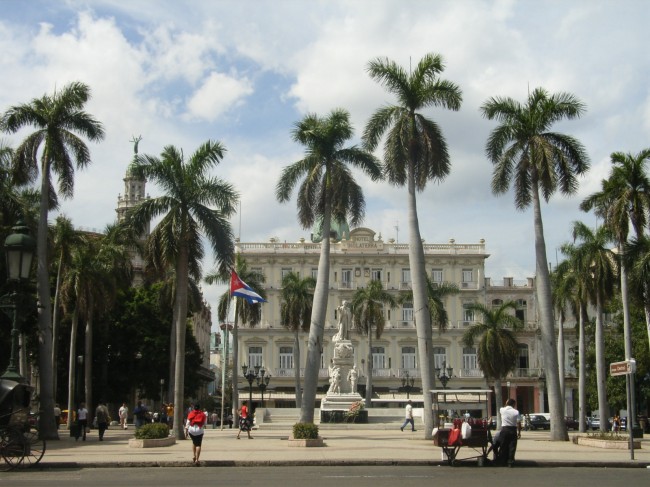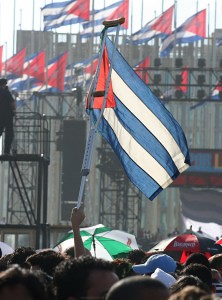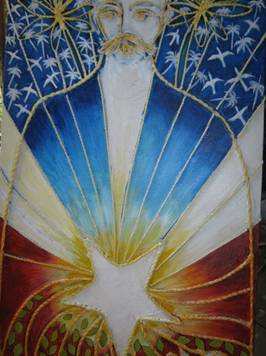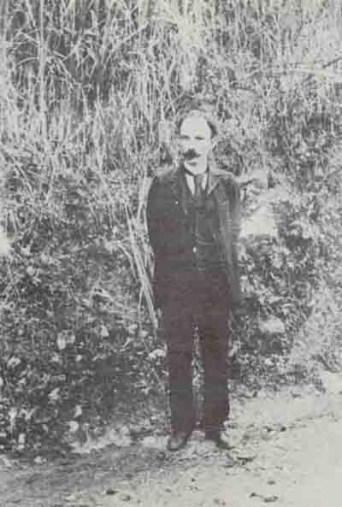
The blog Desde La Habana is an adventure that today, January 28, is two years old. It has not been easy to get here. The idea of creating a blog came to me in the winter of 2006.
From the end of the 90s, I had been collaborating regularly with the online site of the Interamerican Press Society and the digital version of Encuentro de la Cultura Cubana, a project of the deceased Cuban writer Jesús Díaz that was launched in Madrid in 1996. Also with the Revista Hispano Cubana, funded in the spring of 1998 in the Spanish capital.
But there were difficulties for un-official journalism. In the spring of 2003, as is well known, Fidel Castro’s government unleashed a raid that put 75 dissidents in prison, among them 27 alternative communicators.
Between the fear that some late night the guys from State Security would knock on my door and arrest me without words, and the desire to try new paths, I decided to try my luck with other tools.
In an issue of Newsweek in Spanish I had read an incredible report about the blogger phenomenon. Just what I was looking for. An instrument where I would be writer and editor. But to make it a reality cost more than I’d hoped. I didn’t know the techniques to create a blog. Nor, at that time, were there public sites to connect to the Internet in Havana.
I didn’t lose faith. Three people signed on to the idea of my having my own blog. On March 25, 2007, my mother, Tania Quintero, an independent journalist and also a neophyte in the management of technology, Magia, and a Cuban living in Spain, opened a blog. Since November of 2003 Tania has lived in Switzerland as a political refugee. Her computer is old but it has 24/7 DSL.
Yoani Sánchez and Reinaldo Escobar were essential for enabling me to open my blog. Through a Swiss journalist I met the Sánchez-Escobar couple in December of 2004. On certain crisp and starry nights, in their apartment on the 14th floor, drinking Guayabita from Pinar del Rio and eating pizzas made by Yoani, several of us friends would talk about the state of things in Cuba.
And then Escobar, with his degree in journalism, had the idea for the magazine Consensus, he was thinking could be produced by our own effort. He invited me to write about sports, but I wanted something else.
Over the end of the year I continued visiting the couple now and again, and Yoani told me about the blog she had opened in April 2007. But it wasn’t until December of 2008, when Yoani lent me a hand. By this date in Havana one could navigate the Internet, paying a lot and in hard currency.
In my personal project, for the collaboration with me, I involved Luis Cino, in my opinion the best independent journalist on the island at that time, and Laritza Diversent, a recently graduated young lawyer. From Madrid my mother would write and from Madrid would come the stories of Raul Rivero published in El Mundo.
I remember going crazy managing a webmaster who charged $ 60 for designing a page layout and $ 5 extra every time he hung your posts. In a café in central Havana I met with Reinaldo and Yoani and they told me I didn’t have to spend a dime. On 28 January 2009 they were thinking of opening a platform they were thinking of calling Voces Cubanas — Cuban Voices.
I joined the party. To ease my ignorance in the management of a blog, they invited me to participate in an accelerated course that Sánchez offered twice a week in her house. I was in the first of six bloggers inaugurating Voces Cubanas.
For me, it was easy to write the posts. But I needed a person abroad to post them for me, because the rising cost of doing the task was unaffordable. Tania talked with Ernesto Hernandez Busto and he accepted. But the blog wasn’t going as I wished.
Starting on 1 January 2010, an extraordinary Portuguese friend, Carlos Moreira, despite having a lot of work, incredibly took on this function in his free hours. Like my mother, who spends up to eight hours a day in front of the Computer, revising texts, verifying dates, selecting photos and videos for the posts written in Havana that I send.
On 22 October 2009 I started to collaborate with the Spanish digital newspaper El Mundo/América. They pay me for my work and topped off with what my family sends with a million sacrifices, they help me to pa the 60 Cuban Convertible pesos I spend each month in Havana hotels to connect to the Internet.
I’ve had bitter moments. After cyber attacks against my blog and the disappearance of the archive with all the posts published in 2009, after I was thrown off Voces Cubanas without a convincing explanation.
Even today, the only argument I’ve been given as a cause for my exclusion as been articles critical of Guillermo Fariñas written by my mother (see the final note). I don’t share this argument. Personally I disagree with the form and content of some of the work written by Tania.
But at her 68 years, living in exile with more than thirty years of experience in journalism, first official and then dissident, she is completely within her right to publish what she thinks in my blog.
We talk enough about democracy and freedom of expression. A discourse in vogue. But in practice, we behave like bigots and censors. An basic evil we Cubans don’t manage to pull out at its roots. Neither those on the island nor those abroad.
I still don’t know if Voices Cubana threw me out because of my mother or if the one to blame is me. During the time I was a part of this platform I never had a serious incident with any blogger, to the point of spoiling the deal we kept. If I had enemies in this group, I didn’t know it.
If I’ve addressed this topic it is because many friends, Cubans and foreigners, have asked me and I don’t know what to say. The one who knows is Yoani.
I hope for an honest answer. I appreciate Yoani Sanchez, and more her husband, Reinaldo Escobar. I have nothing against Orlando Luis Pardo and Claudia Cadelo, two of the most active bloggers.
This adventure of creating a blog is marvelous, like raising a child. I have many material limitations and to top it off I can report enmities to you. But I don’t do journalism to please anyone. That’s the point.
Either way, 2011 appears promising to me. I have a ton of ideas to grow the blog in quality and content. For now, my posts from Havana will continue to appear on time.
*I took the title from a poem borrowed from Raul Rivero (Editorial Sibi, Miami 1996)
Photo: Stathis, Panoramio. Central Park in Havana where the principal statue dedicated to José Martí inHavana is found. The colonial style building is the Hotel Inglaterra, founded on 23 December 1875.
Translated by RST
January 27 2011
 I am going to start raising carrier pigeons. Perhaps the color doesn’t matter to me as much as the animal. They must be pigeons! It has occurred to me that this bird, the one of peace, could also help me combat censorship and publish my ideas on the web. I have thought about my best strategy: Hang the post on the foot of one of these and a link to another through which I can “load it” on WordPress. My friends laugh and I’m exasperated.
I am going to start raising carrier pigeons. Perhaps the color doesn’t matter to me as much as the animal. They must be pigeons! It has occurred to me that this bird, the one of peace, could also help me combat censorship and publish my ideas on the web. I have thought about my best strategy: Hang the post on the foot of one of these and a link to another through which I can “load it” on WordPress. My friends laugh and I’m exasperated.








 Mariela is a good-natured and cheerful easterner in her thirties, living in the capital for years, to whom God has not given children, but “the devil gave her nephews,” and every time there’s an opportunity not to skimp on gestures to show her affection to the cherubs and to see, according to her own words, “how their faces light up,” when she gives them a present although they must share it between them. Last January 5, with the little bits of money she found “on the side,” she went early to one of the shopping centers in the municipality of 10 de Octubre selling in hard currency, to entertain them with something for all three, as once again there was not enough money to get something for each of them.
Mariela is a good-natured and cheerful easterner in her thirties, living in the capital for years, to whom God has not given children, but “the devil gave her nephews,” and every time there’s an opportunity not to skimp on gestures to show her affection to the cherubs and to see, according to her own words, “how their faces light up,” when she gives them a present although they must share it between them. Last January 5, with the little bits of money she found “on the side,” she went early to one of the shopping centers in the municipality of 10 de Octubre selling in hard currency, to entertain them with something for all three, as once again there was not enough money to get something for each of them.